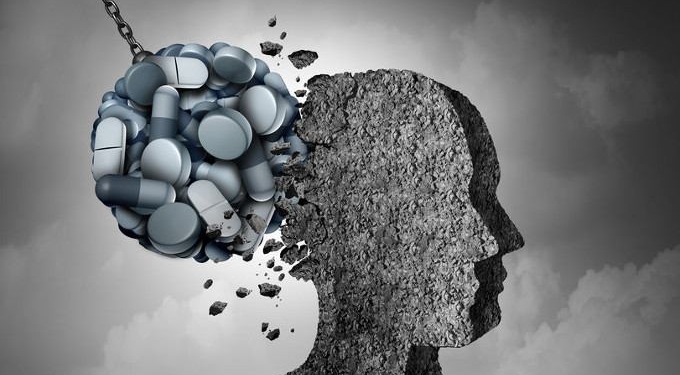
In America, there has been a devastating rise in addiction across the country. There has been a recent ongoing opioid epidemic due to doctors prescribing opiates without much explanation or care, and the media in our society supporting drug addiction through popular movies and music. Even though many people from all walks of life suffer from an addiction to opiates, there is still a stigma surrounding the issue that prevents many people from seeking help; which may leave their addiction untreated, causing overdose and possible death.
According to the CDC, “In 2017, more than 70,000 people died from drug overdoses, making it a leading cause of injury-related death in the United States. Of those deaths, almost 68% involved a prescription or illicit opioid”. The amount of death associated with opiate addiction is something we should all work to prevent, and that starts with raising awareness and breaking the stigma.
What Does an Addiction to Opiates Look Like?
When you or a loved one have been using prescription opioids, or you suspect someone is addicted to opiates, it is important to be armed with the facts that can assist you in spotting an opiate addiction. Some people are able to continue holding up regular appearances and responsibilities while battling an opiate addiction, but over time the symptoms of their addiction will begin to worsen.
Common Symptoms of Opiate Addiction:
- Taking opiates even when the person is not in pain
- Changes in sleep patterns
- Going to multiple doctors in order to obtain multiple prescriptions of opiates
- Taking the prescription not as prescribed, usually because they have developed a tolerance or want to feel a more intense effect of the high produced
- Changes in their mood and priorities
- Risky behavior that they would not be involved in previously
While there is a need for opiates when relieving pain from serious conditions or accidents, using opiates for pain relief for a long period of time can result in addiction and eventually death. Here are some examples of commonly abused opiates:
- Codeine: This is prescribed for pain or coughing, and most commonly prescribed by dentists. Codeine is mild when compared to other opiates, but it is still abused often.
- Hydrocodone: Prescribed for pain, this is most often found in Vicodin or in conjunction with ibuprofen/acetaminophen but it can also be prescribed alone.
- Morphine: Usually used as intravenous pain medication in hospitals, but this opiate can also be prescribed in pill form. This medication is extremely helpful as a short-term fix for severe pain but is extremely addictive when abused.
- Oxycodone: Sold and prescribed under brand names like OxyContin and Percocet, this is one of the most commonly abused opiates and is responsible for many overdoses. While it has good use for relieving pain, no opiate should be used as a long-term solution.
- Dilaudid: This is a very powerful pain relief medication that is given either in the hospital or as an extended-release pill. This medication is highly addictive and can lead to breathing problems or death.
- Fentanyl: This is a newer and extremely powerful form of opiate typically used in the treatment of severe pain. On the street, drug dealers will mix heroin with fentanyl which almost always results in an overdose. This drug is extremely addictive and dangerous when used without proper medical supervision.
How to Get Help When Dealing with an Opiate Addiction
Opiate addiction is extremely common, but it is still a very dangerous condition. Without medical assistance, detoxing from opiates can be life-threatening. It is of the utmost importance that if you or a loved one is attempting to quit using opiates, you seek professional help. Typically, the first step towards sobriety is to find a detox center near you that can safely help you detox from opiates. Detox centers will help you develop good nutritional habits, deal with underlying issues that may have been the cause of your addiction, and teach you how to manage your emotions all while getting the drugs out of your system.
After detox, patients have the choice of going to inpatient treatment centers or outpatient programs that will continue to help them remain sober. Long-term sobriety is about more than just removing the drug from your system. Many people find it extremely beneficial to go to 12 step meetings, therapy, and other forms of drug rehabilitation centers because these methods provide the person with a sense of accountability to remain sober.















